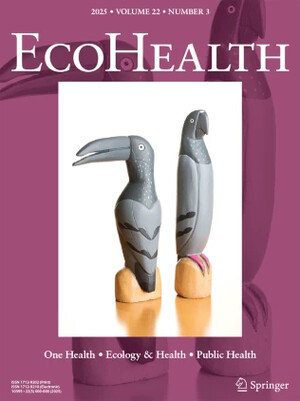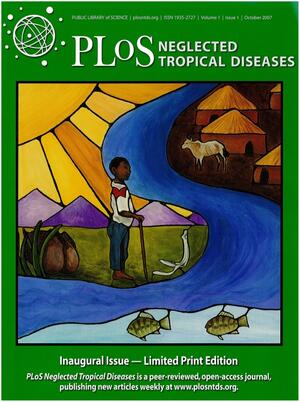
Field validation of clinical and laboratory diagnosis of wildebeest associated malignant catarrhal fever in cattle
Abstract
Wildebeest associated malignant catarrhal fever (WA-MCF) is a fatal disease of cattle. Outbreaks are seasonal and associated with close interaction between cattle and calving wildebeest. In Kenya, WA-MCF has a dramatic effect on cattle-keepers who lose up to 10% of their cattle herds per year. The objective of this study was to report the impact of WA-MCF on a commercial ranch and assess the performance of clinical diagnosis compared to laboratory diagnosis as a disease management tool. A retrospective study of WA-MCF in cattle was conducted from 2014 to 2016 at Kapiti Plains Ranch Ltd., Kenya. During this period, 325 animals showed clinical signs of WA-MCF and of these, 123 were opportunistically sampled. In addition, 51 clinically healthy animals were sampled. Nested polymerase chain reaction (PCR) and indirect enzyme linked immunosorbent assay (ELISA) were used to confirm clinically diagnosed cases of WA-MCF. A latent class model (LCM) was used to evaluate the diagnostic parameters of clinical diagnosis and the tests in the absence of a gold standard. By PCR, 94% (95% C.I. 89–97%) of clinically affected animals were positive to WA-MCF while 63% (95% C.I. 54–71%) were positive by indirect ELISA. The LCM demonstrated the indirect ELISA had poor sensitivity 63.3% (95% PCI 54.4–71.7%) and specificity 62.6% (95% PCI 39.2–84.9%) while the nested PCR performed better with sensitivity 96.1% (95% PCI 90.7–99.7%) and specificity 92.9% (95% PCI 76.1–99.8%). The sensitivity and specificity of clinical diagnosis were 99.1% (95% PCI 96.8–100.0%) and 71.5% (95% PCI 48.0–97.2%) respectively. Clinical diagnosis was demonstrated to be an effective method to identify affected animals although animals may be incorrectly classified resulting in financial loss. The study revealed indirect ELISA as a poor test and nested PCR to be a more appropriate confirmatory test for diagnosing acute WA-MCF. However, the logistics of PCR make it unsuitable for field diagnosis of WA-MCF. The future of WA-MCF diagnosis should be aimed at development of penside techniques, which will allow for fast detection in the field.
Citation
Orono, S.A., Gitao, G.C., Mpatswenumugabo, J.P., Chepkwony, M., Mutisya, C., Okoth, E., Bronsvoort, B.M.C. de, Russell, G.C., Nene, V. and Cook, E.A.J. 2019. Field validation of clinical and laboratory diagnosis of wildebeest associated malignant catarrhal fever in cattle. BMC Veterinary Research 15:69.









